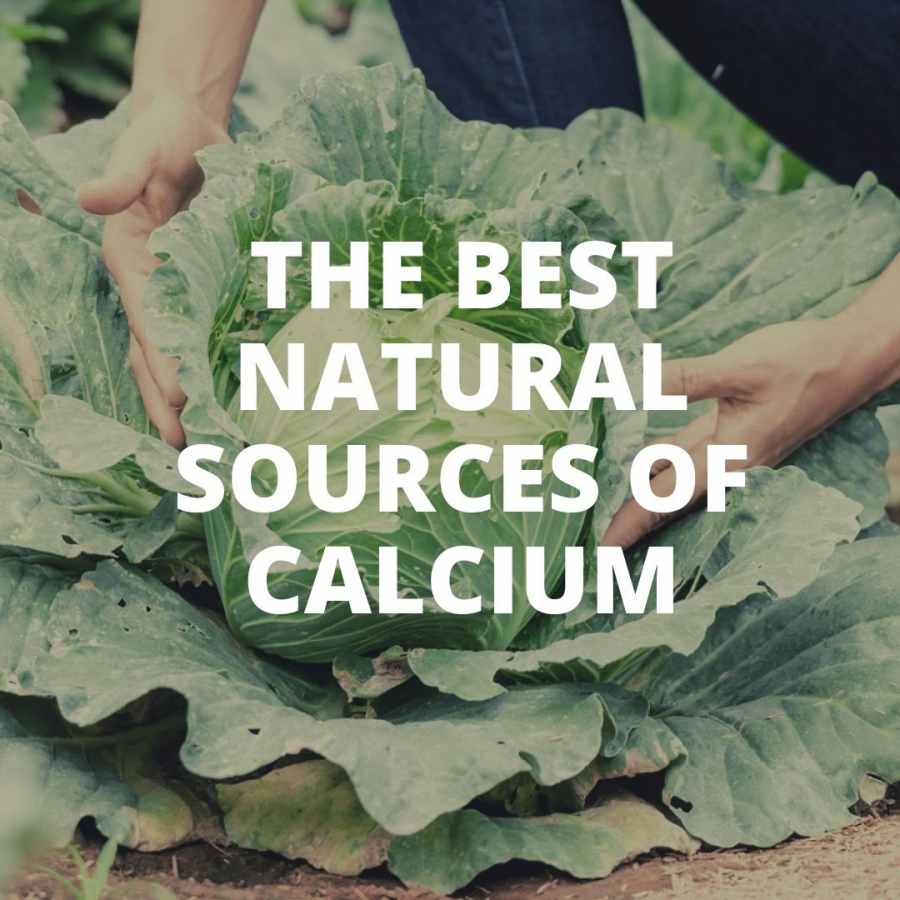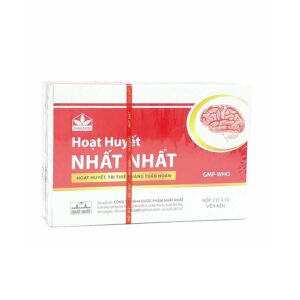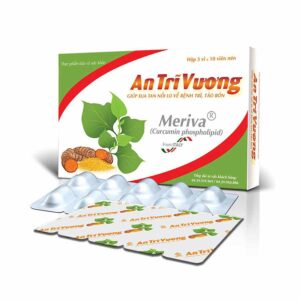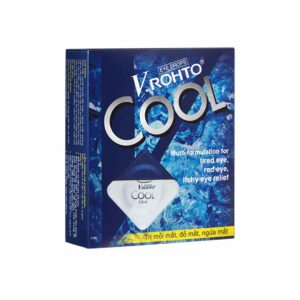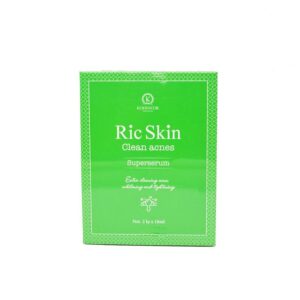Calcium is the most abundant mineral in the human body and is involved in many important functions of our body. It plays a vital role in nerve function, hormonal regulation, cardiovascular health, and the creation and maintenance of strong bones and teeth.
Recommended daily intake of calcium is 1,000 mg per day for most adults (women over 50 and all people over 70 need 1200 mg per day).
Five foods that have more calcium than a glass of milk
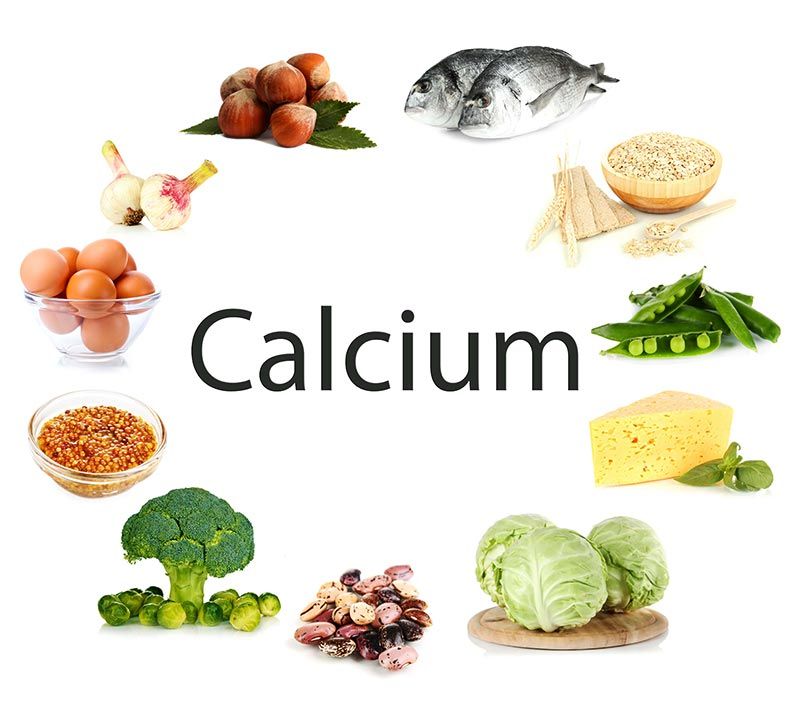
These five foods contain more calcium than a glass of milk (over 300 mg):
- Yogurt (200 ml);
- Calcium-Fortified Orange Juice (1 cup);
- Mozzarella cheese (40 grams);
- Sardines (90g);
- Cheddar cheese (40 grams);
While dairy sources of calcium, such as milk and cheese, are valuable sources of calcium, plant-based foods can also meet your daily calcium needs.
The best natural sources of calcium
-
Leafy greens
Leafy greens are at the top of most superfood lists. It is rich in nutrients including calcium. All dark leafy greens contain some calcium, but certain leafy vegetables (such as spinach, chard, and beets) have high levels of oxalic acid, which can interfere with calcium absorption.
Some vegetables that contain calcium have relatively low levels of oxalic acid.
These include cauliflower (266 mg per cup cooked), bok choy (160 mg per cup cooked), cabbage (179 mg per cup cooked), and broccoli (100 mg per cup cooked). If you rely on greens to meet your calcium needs, go for kale.
-
Kefir
This is a traditional drink for our country, which is a source of beneficial bacteria for the intestines.
It is also an excellent source of calcium, with 300 to 400 milligrams of calcium per cup. This is even more than in cow’s milk.
This fermented milk drink is also rich in magnesium and potassium, and research shows it can help lower blood pressure.
Kefir is also an excellent source of vitamin K2, a nutrient that helps reduce the calcification of our arteries. And yet, kefir is a great addition to smoothies.
-
Soybeans
Soybeans, not quite familiar to us, are naturally rich in calcium and are one of the most versatile plant sources of this mineral.
One cup cooked contains about 100 mg of calcium, along with a dose of other nutrients, including vegetable protein, fiber, folate, vitamin K, B vitamins, and iron.
Soybeans are also used to make many soy-based foods, including tofu and soy milk, but most of the calcium is lost during the cooking process.
However, calcium is added during the tofu making process, and soy milk is often fortified with this mineral.
Tofu that has been cooked with calcium can provide 200-434 mg of calcium per 150g serving. If you’re on a completely plant-based diet, adding soy foods like tofu to your diet every day is a good idea for many reasons, including calcium intake.
-
Sardines
100 grams of canned sardines (with seeds) provides about a third of your daily calcium requirement, which is more than a cup of milk!
They also contain vitamin D, which plays an important role in calcium absorption, and are one of the best sources of omega-3 fatty acids. If you do not like pure sardines, prepare various salads with them.
Try bone-in canned salmon, another good source of calcium. Calcium is found in tiny bones, so if they were removed the calcium will disappear too.
-
Yogurt
Plain yogurt, which contains about 400 mg of calcium per cup, is one of the best dietary sources of calcium.
It also contains gut-friendly probiotics as well as protein, phosphorus, potassium, riboflavin, and B12.
When it comes to calcium content, plain yogurt is superior to Greek yogurt, although both are beneficial for gut health.
Choose plain yogurt (instead of flavored) and sweeten it with fruit and a little honey (if needed) to limit your sugar intake.
Nutritionists recommend whole milk yogurt because it keeps you satiated longer and tends to be lower in sugar than low-fat or non-fat yoghurt.
-
Fortified vegetable milk
Some plant-based milk varieties contain calcium and can be a good source of the mineral. Check the labels, many contain up to 450 mg of calcium per glass of drink. That’s more than a cup of cow’s milk.
Soy milk and pea protein milk are the best types of plant-based milk for a healthy diet.
Not only do they provide more than 30 percent of your daily calcium requirement, but they also contain protein, vitamin D, and other important nutrients.
Fortified milk is an easy way to incorporate calcium into your diet, especially if you like the drink in cereals, smoothies, and coffee drinks.
Choose unsweetened or low-sugar foods (less than 5 grams per serving) to minimize your intake of added sugar.
Other options
Alternative natural sources of calcium include:
- Cow’s milk;
- Cheese;
- Almond;
- Seeds (chia, sesame and poppy seeds provide more than others);
- Figs;
- Oranges;
- Orange juice;
With a varied diet, meeting your daily calcium needs can be easy, but if you are on a specific diet, you will need to purposefully get enough calcium from your diet.
Read more:
7 foods that are contraindicated for allergy sufferers in the summer
How magnesium may help deal with irritability in men

